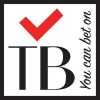Separate business and personal finances
Open a Business Bank Account as soon as you decide to go with your start up and get a separate Business Card. This not only separates your accounts but also helps your business build its own credit rating. It also will reduce your Accountants/Bookkeepers time processing your accounts and save on fees.
Choosing the Right Accounts Software
Manually entering data into spreadsheets is extremely time consuming and expensive. Use cloud-based accounting software like Xero and MYOB so you can connect your Business Bank Accounts with Bookkeeping Software. This ensures you have accurate and up to date records. Cloud-based Accounting is also backed up safely off site.
Perform regular financial check ups
Set aside some time each week to go over your accounts. Xero makes it really easy to reconcile your bank accounts. You can check who has not paid and get in touch with them quickly. A great way to keep on top of things.
Do a Quarterly Review
Each Quarter take a look at sales growth, overdue customers. Has there been an increase in spending? Is there a way to reduce Utilities? Your Bookkeeper/Accountant can help you see the big picture, so you are better prepared for future capital needs.
Keep Records of Business Expenses
Keep all your expense records for reimbursing and Creditors. Xero has a great function where you can take a photo of your receipts or transfer a pdf file of your bill to their software. That is a permanent electronic record on file. This is handy for those tape receipts that fade over time.
Use a Payroll Software System
If you have Employees, it is vital that you have a way to keep accurate and up to date records on their pay. There are many payroll systems available and are easy to learn. Xero Payroll is attached to Xero Software so the totals of each pay run automatically get transferred across for you. It also utilises time entry automatically for you.
Do regular checks on Accounts Receivable
It is really important to get in contact with overdue customers as soon as you can. When customers do not pay on time, it can create cash flow problems. If a customer is having financial problems, you can set up a payment plan. Check with your Bookkeeper/Accountant on Credit Management options. Some offer a Credit control service, so you do not have to deal with the customer personally.
Pay your Taxes on Time
A good way to ensure you have enough money to pay your taxes like GST and Income Tax, is to have a Business Tax Savings Account where you can put aside some money on a regular basis. The IRD can send reminders to help you remember when your payments are due.
Talk to your Accountant/Bookkeeper
There is a lot of help out there whether you are starting up a new Business or want help in growing your Business. Your Accountant/Bookkeeper can give you the right advice and point you in the right direction.
Outsourcing your Accounts
If you decide you do not want to process your accounts yourself, a Bookkeeper is a really good option. Contracting a Bookkeeper is an investment to help grow your Business. The time you save not having to do your own accounts can be invested in your own advertising and even having a well-earned break especially over the Christmas Holidays.
Information Source: https://www.score.org/blog/10-tips-better-small-business-bookkeeping







